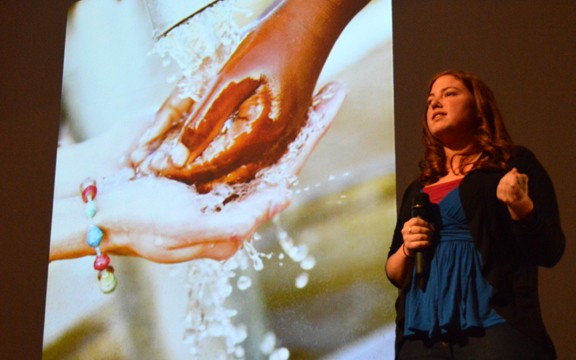Members of a national organization asked the UA community to join them in providing clean water for people in developing nations.
Representatives from The Thirst Project, informed the UA community about the worldwide water crisis in the South Ballroom of the Student Union Memorial Center on Monday.
Katie Allen, a board member of the project, told the audience that about 1 billion people don’t have access to safe, clean drinking water and proper sanitation.
Allen added that, “4,500 children die every day from diseases caused by contaminated water.”
The Thirst Project aims to encourage people to raise money in order to build water wells across the world in developing countries that do not have access to clean water, according to the presentation by Allen and Heidi Weaver, an intern for the project.
The national organization raised enough money to build a well in Uganda this year and is working on building a second well, according to Allen.
“The number one and number two killer globally for children are diarrhea and dysentery. Both are water borne illnesses and incredibly preventable,” Allen said. “Contaminated water and diseases in contaminated water have killed more children every single day than AIDS, malaria, and world violence combined.”
The Thirst Project on the UA campus has taken strides to form their club and fight the worldwide water crisis according to President Ashkan Rastegar, a pre-physiology sophomore. The club has been a presence on campus since spring 2012.
“We hope to raise awareness on this pressing issue. We also hope that people leave presentation willing to help the cause and tell at least one more person about it,” Rastegar said.
Allen and Weaver shared narratives from people who are suffering from the water crisis and information on how each individual attending the presentation can help.
“It is sad to know that there is people out there that don’t have access to clean water. It is something that is vital to life, we are here to make a difference,” said Arely Amezquita, a pre-public health sophomore and a UA Thirst Project Club member.
At the end of formal presentation, the audience was encouraged to ask questions and engage with project members for further information.
“We challenge UA Campus with the question, ‘How much more can you do on this campus?’” Allen said. “We hope that you share this message. Thousands of people are dying every day from this crisis. We need your help.”









